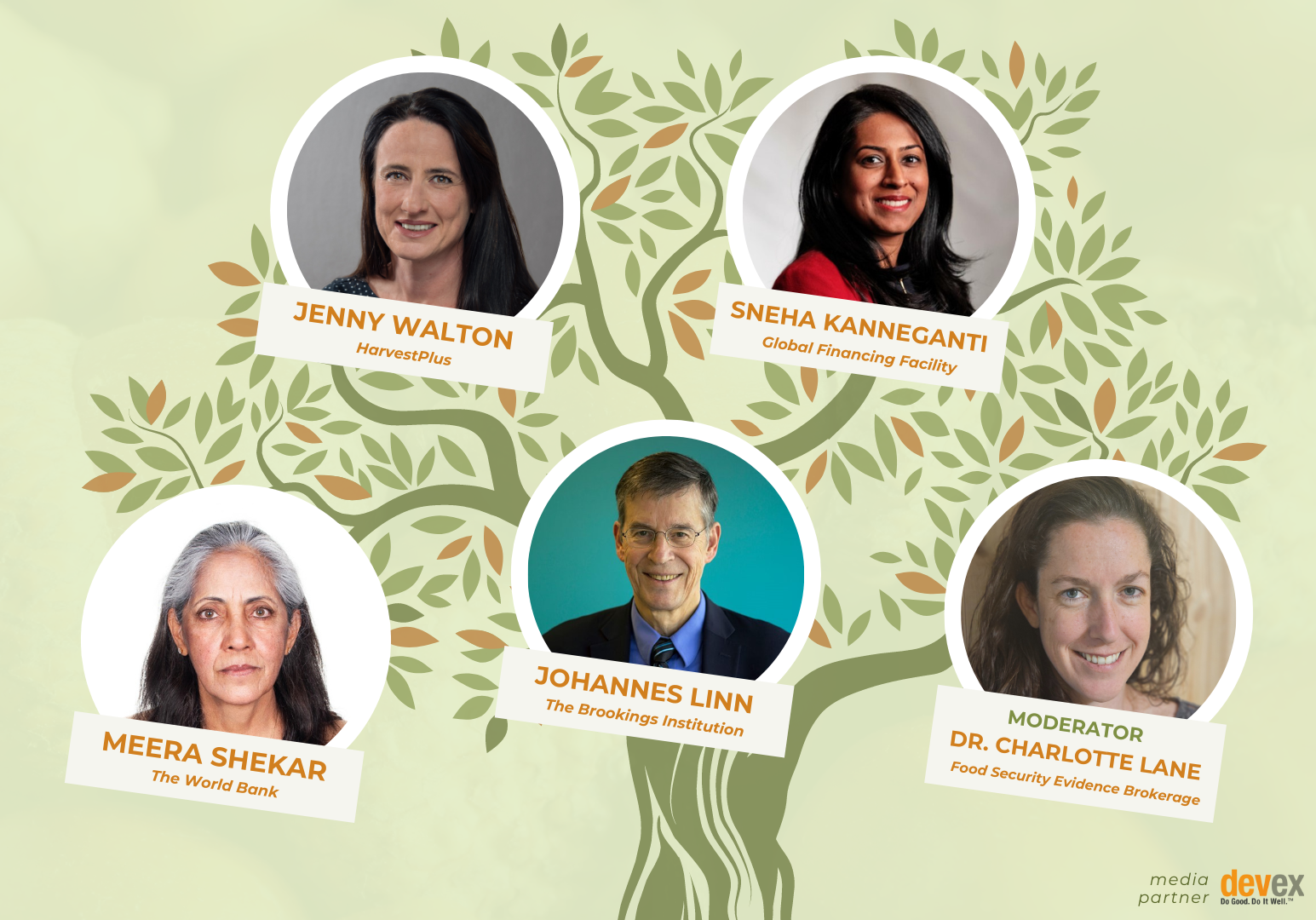Description
After being dormant for a few years, the Nutrition Working Group re-launched with a discussion on scaling nutrition interventions, focusing on the private sector. Charlotte Lane set the stage, challenging the status quo of hyper-localized, small-scale nutrition initiatives and advocating for a paradigm shift towards large-scale, impactful solutions. Her opening remarks underscored the opportunity to leverage the private sector’s reach and efficiency to meet the nutritional needs of millions but indicated that mistrust and miscommunication may inhibit effective collaboration.
Jenny Walton, representing HarvestPlus, built upon this theme, sharing the organization’s success in integrating biofortified foods into the global food system. She articulated the critical role of private sector partnerships in scaling and sustaining nutrition solutions. Walton concluded that the goals of the private and public sector are often aligned, but advocated for nuanced communication that bridges the gap in language and perspective, thereby uncovering shared values and objectives.
Sneha Kanneganti then took the floor, presenting the Global Financing Facility’s approach to embedding nutrition within health services through innovative financing and public-private partnerships. She highlighted the strategic use of data to tailor these partnerships effectively, ensuring they meet the operational realities and goals of nutrition service delivery. Kanneganti emphasized the convergence of interests among governments, service providers, and the private sector, who may be the same groups or have overlapping interests and mandates.
Meera Shekar expanded the discussion to a global scale with the World Bank’s Global Challenge Program, which seeks to intertwine food security, nutrition, and climate-smart agriculture within a comprehensive strategy. She championed cross-sectoral collaboration, highlighting the uniquely inclusive aspect of the new program, in which everyone, including the private sector, is “in the room” from the program’s inception. Shekar detailed a forward-thinking agenda, aimed at transforming global food systems through innovative and scalable interventions.
The panelists collectively navigated the complexities of engaging with the private sector, addressing challenges such as mutual mistrust and the need for alignment in priorities and language. They concluded that the nutrition community must foster a more inclusive, supportive, and collaborative approach to establish shared value and common goals with the private sector. The call to action was clear: to harness the private sector’s capabilities in a symbiotic partnership, aiming for sustainable and widespread nutrition outcomes, thereby transforming the narrative from one of contention to one of cooperation and mutual benefit.





